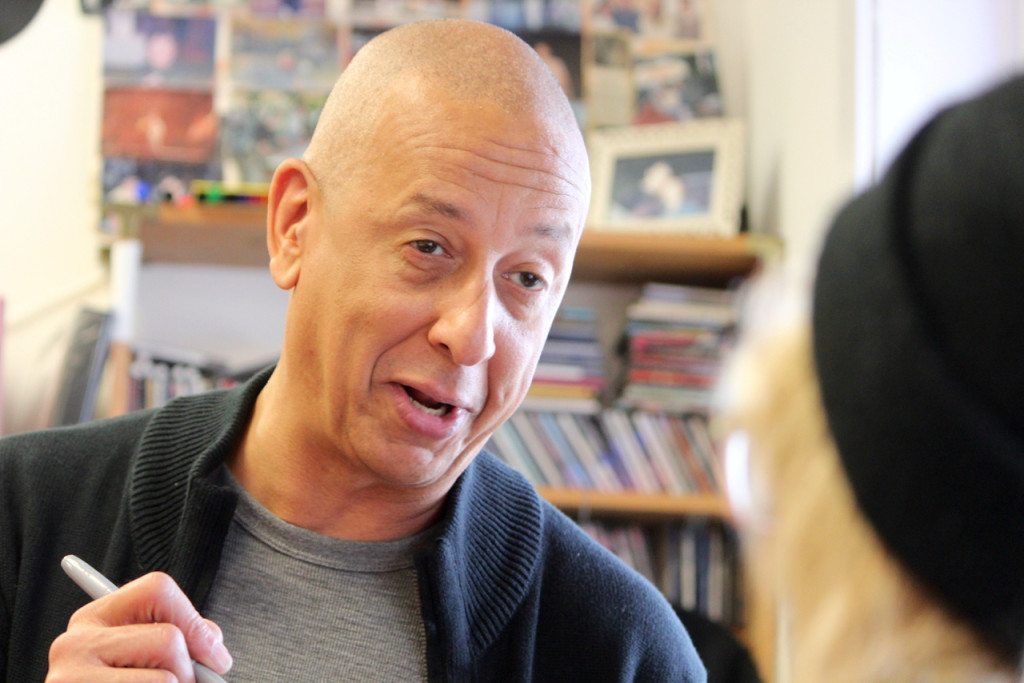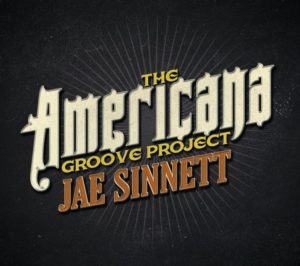
Composer and drummer Jae Sinnett has spent so many years working as a jazz musician and spreading the good word about the latest and greatest jazz artists via his long-running radio show “Sinnett in Session” that it’s almost jarring to see his name attached to an album entitled The Americana Groove Project.
As it happens, Sinnett actually started his professional music career playing rock and soul, and it was a desire to go back to his musical roots that led him to traverse this particular path.
In an email interview, Sinnett delved a little deeper into the album and how it came together.
The Indy: Title-wise, it might sound like you’re stepping outside of your usual element, but the material is still very much in a similar musical ballpark. Did you ever find yourself fighting against your jazz instincts in order to feature the funkier groove you intended?
Sinnett: Interesting question. Americana as it’s usually defined relates more to acoustic music like bluegrass or folk or blues to a degree, which in my view is limited in scope. How can we say soul, funk, rock or jazz isn’t Americana? My interpretation of the word is considerably more vast than how it’s usually defined. After playing jazz for so many years, it becomes part of the musical DNA, so there are jazz sensibilities in this music, yes. But I’ve played all the genres and know clearly the differences. I can walk that line, for sure.
The Indy: You’ve got Hammond B3 organ on the album, Booker T. Jones’ instrument of choice. Can I presume that he and the MG’s were in your mind – even if only in the back of it – when thinking about this project?
Sinnett: Booker T. and the M.G.’s were definitely an influence. One of many. Those were the days when you could have an instrumental hit: “Green Onions,” “Groovin’”… Oh, man. And then there were groups like The Meters out of the Crescent City or the Bar Kays, the gospel of Rev. James Cleveland or The Mighty Clouds of Joy. I grew up in the black church, so the organ sound was prevalent. That sound… You never forget it.
The Indy: Despite the classic drummer joke — “What’s the last thing a drummer says in a band? ‘Hey, guys, how about we try one of my songs?’” — you took the mic and did sing one of your songs.
Sinnett: I’m singing by default. The singers I asked all canceled before ever hearing a note of the music. Not sure why, but I simply got tired of asking folks and decided to try it. I sang in church growing up and in disco/funk bands in the 70’s, but more in a background harmony position, not lead. I got advice and coaching beforehand to see if I could even do it. I have a background that’s laced in soul music, so the emotional sensibilities are in place, and my sense of interpretation is very good. I wrote the songs, too, so I know them well, and fortunately they all happened to be in comfortable keys for me.
The Indy: How do you see the climate in Hampton Roads for indie musicians in 2018? Is it more challenging than ever to forge a path with original material, or is it easier now that there’s social media to help spread the word more specifically to the people who like the sort of music you’re making?
Sinnett: It’s a challenge anywhere to play your own music. That’s a big part of the reason why I got a job: so I could play music the way I want to. The difficulty for indie artists like myself is getting the music heard. Commercial stations basically don’t play music that’s not on the Billboard Top 200 charts, and how many indie artists can get their music there without heavy label backing or strong management support? Not many. So we definitely depend on social media outlets to help get our work out to the masses. Luck plays a part in it, too, and a tremendous amount of hard work and effort is needed. The bottom line, though, is that your work has to be really good. Not average You can’t be just mediocre and expect things to work for you.
The Indy: Do you see yourself as a musician who’s going to keep playing until he drops, or do you ever consider winding down?
Sinnett: I’ve slowed down over the past few years. Not because I don’t want to play, but more to do with being considerably more particular where I want to play and what. It’s my life and I will play as long as I can. It’s a blessing to me to be able to do this. To create. To make music that people enjoy. How can you give that up if you’re healthy?

Learn more about Sinnett and his music via jaesinnett.com.
© 2018 Pungo Publishing Co., LLC

